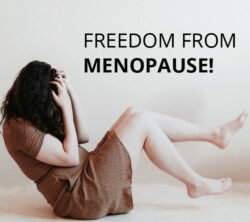Reducing Symptoms of PMS
Premenstrual Syndrome is not a disease, but rather an imbalance in body chemistry. 80% of women will experience and struggle with symptoms of PMS.
I can help you better understand what PMS is, why you might be suffering, and offer you some tips on how to soothe the symptoms.
What is PMS?
There are four classes of PMS:
1. PMS A
Categorized by feelings of anxiety, nervous tension, mood swings, and irritability. Most women suffer from at least some symptoms from this class of PMS
2. PMS H
Categorized by water retention, bloating, swelling of the hands and feet, and breast tenderness. This class of PMS is the result of mineral imbalances or a lack of essential fatty acids.
3. PMS C
Categorized by cravings, especially for sweet foods, headaches, fatigue, increased appetite, dizziness, and blood sugar imbalances. These symptoms can be the result of insulin resistance and possibly increased levels of inflammation in the body.
4. PMS D
Categorized by depression. PMS D is the least common class of PMS but is still experienced by 25% of women suffering from PMS.
Dr. Sandy’s Story
From the time of my first menstrual cycle, I suffered from extreme PMS. Over time my symptoms expanded to fill at least the first two weeks of every month.
I was given a ton of medications to try, and none helped at all. Eventually, I was suffering from immune system failure and a ton of related problems, including constant colds, cardiovascular issues, endometriosis, and infertility. I knew something had to change.
So I made a change. I adopted a super healthy diet with correct supplementation and a good exercise regime. Soon my body began to thank me, and with time all my health issues disappeared. The first symptoms to go were those of PMS.
Do I Have PMS?
Symptoms of PMS can easily be mistaken as signs of other health issues. It is difficult to know whether the cause of a given symptom is, in fact, PMS. We have established that at the heart of PMS is hormonal imbalance, but without having your blood chemistry tested, this can be tricky to measure. So, I have a few questions for you that will help with this.
Are you living a stressful life?
Chronic stress causes a whole lot of issues for a woman’s reproductive system and so might be responsible for the hormonal imbalances causing PMS.
Every time we experience stress, our bodies release sugar from our muscles. When encountered at an increased rate, this sugar spike can cause insulin resistance. As we know, insulin resistance can cause PMS C and all those cravings, and recent studies have shown that this might be a key to the PMS problem!
Taking steps to eliminate sources of stress from your life is critical. Find ways to decompress, perhaps with exercise, meditation, or prayer.
Are you exposed to toxins?
When you are trying to achieve wellness, one of the most important things to do is allow your hormones to become balanced. To do this, you must avoid anything that will create hormonal imbalances, particularly chemical exposure.
Try to use organic produce as much as possible and avoid the use of plastics with food. Hormones in plastics leach out when heated – do not heat any plastic in the microwave or use the same plastic water bottle repeatedly.
Do you have sugar and starch cravings?
Cravings have everything to do with insulin resistance, and as we know, insulin resistance has a ton to do with PMS.
Symptoms caused by insulin resistance may be minor at first but can lead to far more severe problems such as cystic ovaries, endometriosis, and immune system failure.
A recent study has shown that moderate to high-intensity exercise, along with a healthy diet, will improve your sensitivity to insulin and relieve related symptoms.
The Diet for Ditching PMS
- Eat six small meals per day; this will help soothe anxiety, irritability, fatigue, headaches, and tearfulness
- Take in a variety of veggies, grains, nuts, low-fat dairy, lean meats, and fish
- Balance your carbs with proteins, try snacks like an apple with low-fat cheese or wholegrain rice crackers with nut butter
- Essential fatty acids are the key, balancing fats will balance your hormones and relieve pain by reducing inflammation
- Drink plenty of water; this will alleviate bloating and fatigue
- Avoid caffeine, sugar, and alcohol
Top Tip – diet and supplementation programs for soothing PMS should be maintained all month long, not just when the symptoms occur!
For more information on solutions to PMS, listen to my talk ‘Reducing Symptoms of PMS.’ There I will give specific nutritional advice and talk about products and supplements that I use and recommend.
What next?
- Book a free, fifteen-minute consultation to discuss your concerns and see how we might be able to help you achieve your health care goals.
- Check out the following Dr Sandy audio downloads:
-
 Freedom from Menopause: eCourse$75.00Add to WishlistAdd to Wishlist
Freedom from Menopause: eCourse$75.00Add to WishlistAdd to Wishlist -
 Reducing PMS Symptoms$14.99Add to WishlistAdd to Wishlist
Reducing PMS Symptoms$14.99Add to WishlistAdd to Wishlist -
 Endometriosis, Fibroids and Ovarian Cysts$14.99Add to WishlistAdd to Wishlist
Endometriosis, Fibroids and Ovarian Cysts$14.99Add to WishlistAdd to Wishlist




